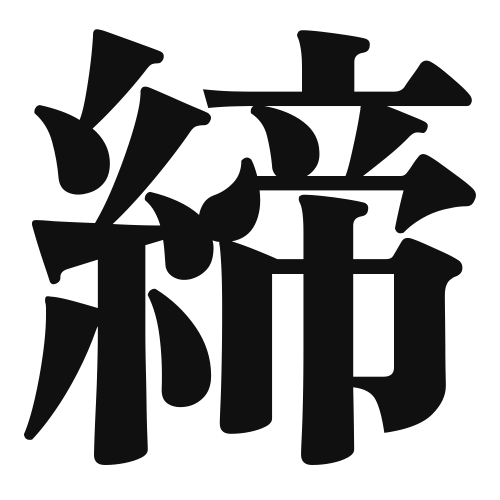1. Overview of Meaning
The kanji 締 (pronounced “shime” or “te”) generally means “to tighten,” “to bind,” or “to conclude.” It conveys the idea of bringing things together or securing them in place.
2. Formation and Radical
Formation of the Kanji: The kanji 締 is a compound character that combines elements to convey its meaning. It consists of the radical 糸 (meaning “thread”) and the character 寺 (which can imply “to bind” or “to tie”). This combination suggests the action of binding or tightening something with a thread.
Radical: The radical of 締 is 糸, which is commonly associated with textiles and threads.
3. Examples of Usage
Common Words and Phrases: Some frequently used words that include 締 are:
- 締める (shimeru) – to tighten
- 締結 (teiketsu) – conclusion (of a contract)
- 締切 (shimekiri) – deadline
Example Sentences in Daily Conversation:
- このベルトを締めてください。 (Please tighten this belt.)
- 契約の締結は来週です。 (The conclusion of the contract is next week.)
4. Synonyms and Antonyms
Similar Kanji: A similar kanji is 結 (ketsu), which also means “to tie” or “to bind,” but it often implies a more permanent or conclusive binding, such as in relationships or agreements.
Opposite Kanji: An antonym of 締 is 緩 (kan), which means “to loosen” or “to relax,” indicating the opposite action of tightening or binding.
5. Cultural and Historical Background
Relation to Japanese Culture: The concept of 締 is significant in Japanese culture, especially in contexts like martial arts, where techniques often involve tightening grips or stances. It also appears in various traditional practices that emphasize precision and control.
Proverbs and Idioms: One common expression is 締めるところは締める (shimeru tokoro wa shimeru), which means “to be strict where it matters,” highlighting the importance of being firm in essential situations.
